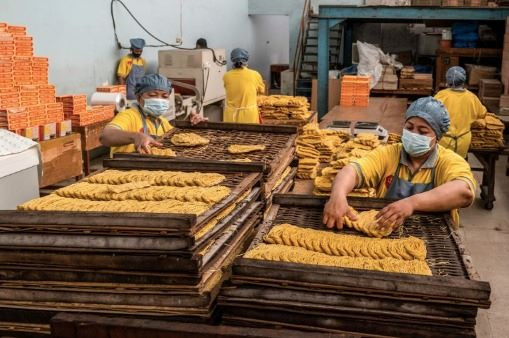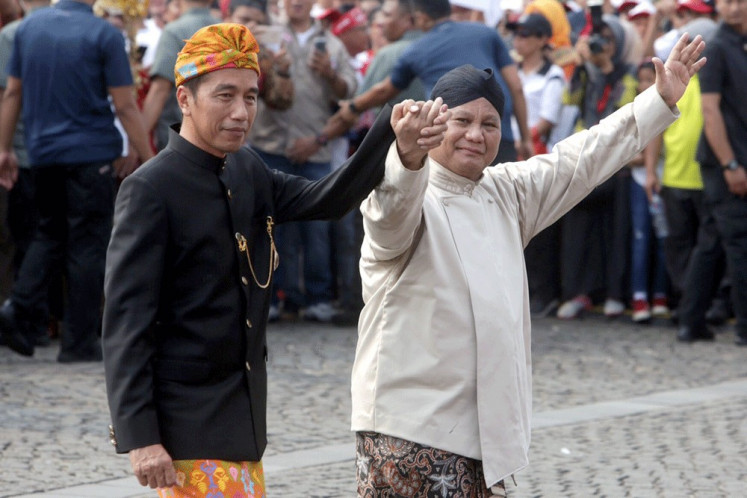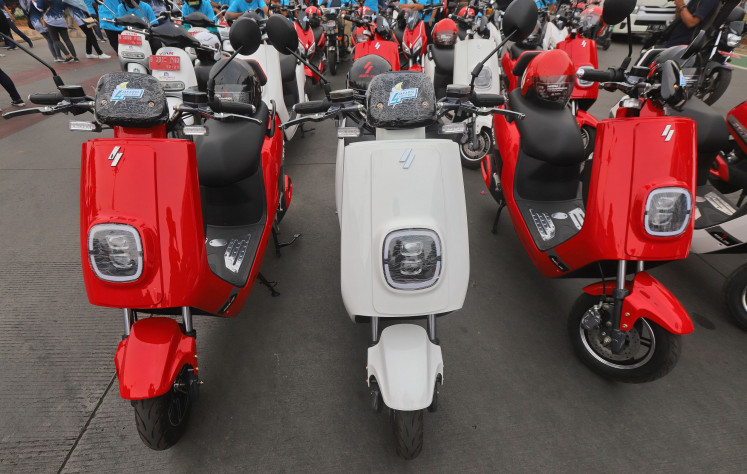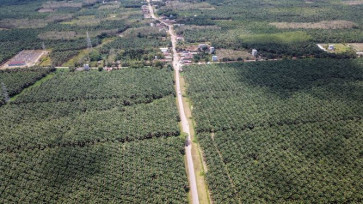EU uses deforestation label to edge out palm oil from the market
The benchmarking system will be set up, palm oil producers, notably Indonesia, the world’s largest producer with an annual output of over 50 million tonnes, will most likely be classified as a high-risk country of origin or supplier.
Change text size
Gift Premium Articles
to Anyone
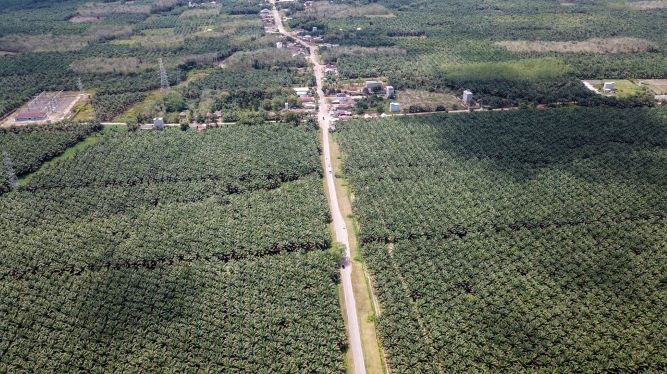 Oil palm belt: An oil palm plantation in Pangkalan Banteng in the Central Kalimantan regency of West Kotawaringin is seen from the air on Nov. 7. Indonesia is the world’s largest producer of palm oil. (Antara/Makna Zaezar)
Oil palm belt: An oil palm plantation in Pangkalan Banteng in the Central Kalimantan regency of West Kotawaringin is seen from the air on Nov. 7. Indonesia is the world’s largest producer of palm oil. (Antara/Makna Zaezar)
T
he European Parliament and the European Council on Tuesday reached a provisional deal on a proposal to minimize the risk of deforestation and forest degradation associated with products that are imported into or exported from the European Union. The agreement is provisional pending formal adoption in both institutions.
In an apparent defense against the critics who have from the outset attacked the deforestation label as discriminative against palm oil, the EU argues that the policy also will be enforced against other commodities and their derivatives that play a substantial part in deforestation such as beef, cacao, soy, timber and rubber.
But Joko Supriyono, chairman of the Indonesian Palm Oil Association (GAPKI) commented: “The EU proposals on traceability, small farmers and risk profiles clearly go beyond what is necessary and reasonable to guarantee sustainability. It would make the EU an outlier in refusing to support Indonesia’s record-breaking environmental progress, and put the EU directly at odds with the 2030 UN Sustainable Development Goals. We urge the Council and Commission to be the voices of reason”.
The EU argues that the rules aim to ensure that when consumers buy these products, they do not contribute to further degrading forest ecosystems. The provisional agreement sets mandatory due diligence rules for all operators and traders who place, make available or export the commodities.
The co-legislators set the cut-off date of the new rules at Dec. 31, 2020, meaning that only products that have been produced on land that has not been subject to deforestation or forest degradation after Dec. 31 2020 will be allowed on the Union market or to be exported.
In an attempt to clarify the many polemics about the deforestation-free label, the Council and Parliament also agreed to set a definition for deforestation, based on a definition from the Food and Agriculture Organization (FAO). They set an innovative concept for the definition of “forest degradation” meaning the structural changes to forest cover, taking the form of the conversion of naturally regenerating forests and primary forests into plantation forests and other wooded land and the conversion of primary forests into planted forests
The co-legislators agreed on stringent due diligence obligations for operators, which will be required to trace the products they are selling back to the plot of land where it was produced. At the same time, the new rules avoid duplication of obligations and reduce administrative burdens for operators and authorities. It also adds the possibility for small operators to rely on larger operators to prepare due diligence declarations.






